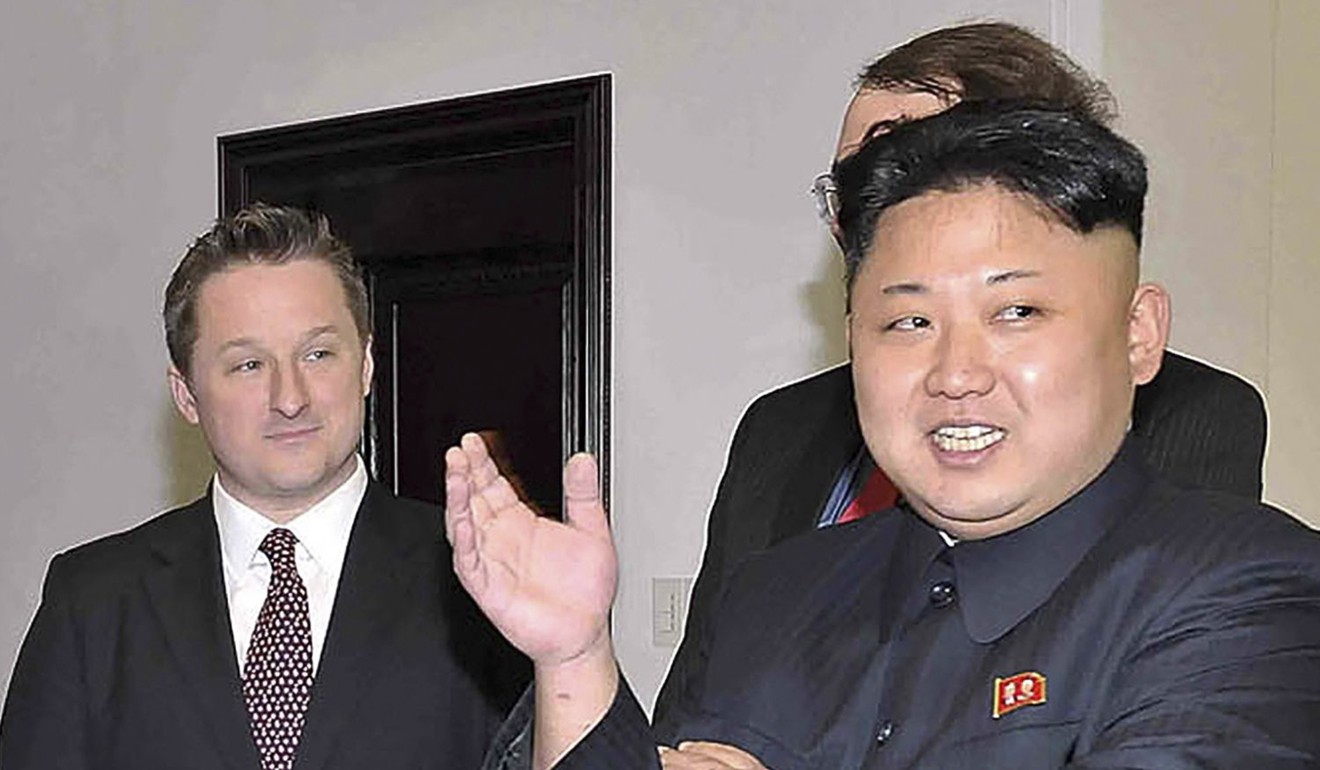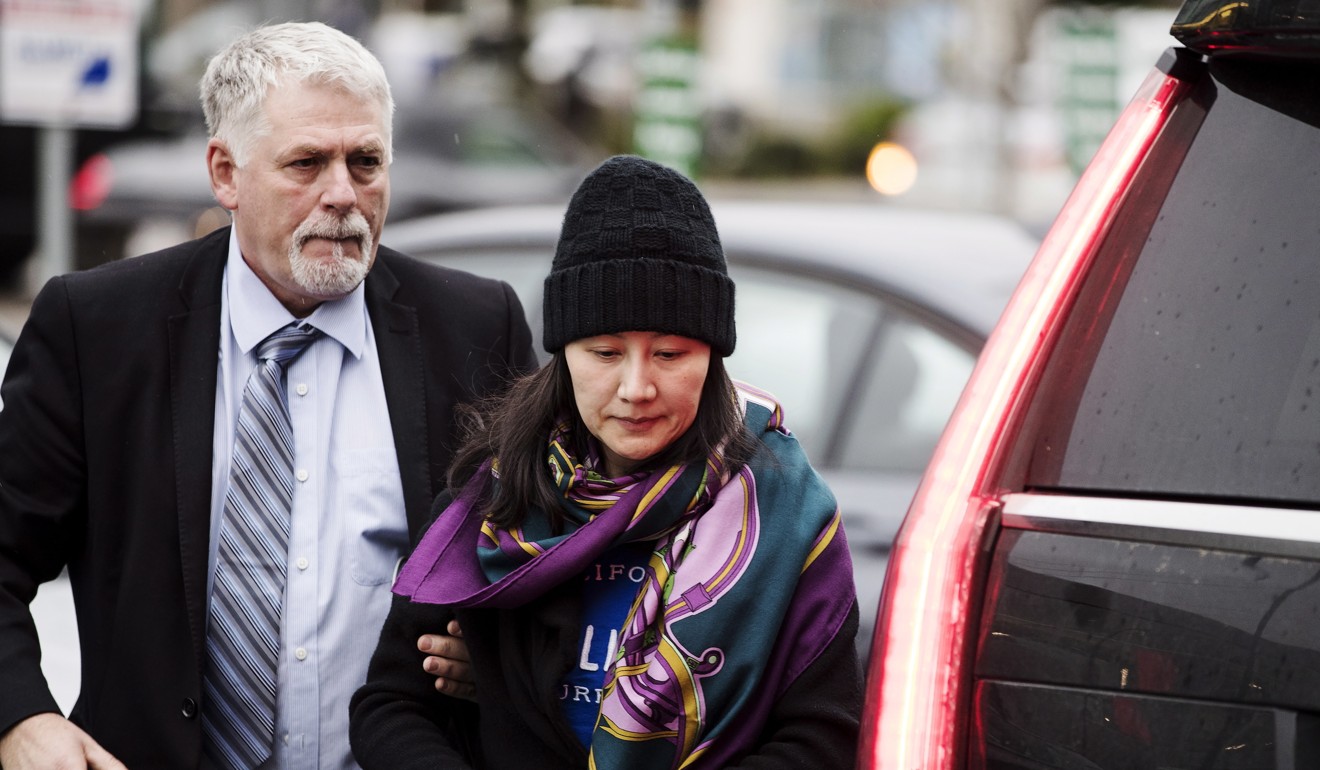
‘There’s a human cost to these political situations’: Chinese arrests all too familiar for past Canadian detainees
- Kevin and Julia Garratt were running a coffee shop in northeast China in 2014 when they were seized by state security, becoming pawns in Beijing’s ploy to stop Canada from extraditing businessman Su Bin to the US
- Neither side has directly linked the arrest of Huawei CFO Sabrina Meng in Vancouver with the detention of two Canadians in China, but the Garratts believe it is a tit-for-tat reprisal
When Kevin and Julia Garratt heard that Canada had arrested a top Huawei Technologies executive, an ominous thought sprang to mind: would a Canadian in China go missing in response?
The Garratts speak from experience. The couple had been running a coffee shop in northeast China in 2014 when they were seized by the country’s state security, becoming pawns in a high-stakes ploy by Beijing to prevent Canada from extraditing a millionaire businessman, Su Bin, to the US. Kevin Garratt was imprisoned for more than two years until he was deported as abruptly as he had been snatched. Julia Garratt spent six months in captivity.
So they were not surprised when they learned that China had detained two Canadian citizens on December 10, just nine days after Canada arrested Sabrina Meng Wanzhou, chief financial officer of Huawei and daughter of the Chinese telecoms giant’s founder. The arrest was made on behalf of the US, which wants to extradite her.
Why the US needs to stand with Canada and set aside politics in the prosecution of Huawei’s CFO
“We were just so hoping that China would react differently this time,” Julia Garratt said by phone from Mae Sot, Thailand, where the couple is delivering aid to villages along the Myanmar border. “China’s chosen the same strategy, and there’s such a human cost to these political situations.”
Neither China nor Canada have directly linked Meng’s arrest to the two detentions. But to the Garratts, there is no doubt it is a tit-for-tat reprisal. “I’m sure it is,” Kevin Garratt said without hesitation. “And I think China will probably just stretch it out as long as the Huawei case goes on.”
At a Monday briefing, China’s foreign ministry again urged the withdrawal of Meng’s arrest warrant. “It is startling that the US and Canada still claim they followed the rule of law,” spokeswoman Hua Chunying said.
Canada’s ambassador to China meets with second detained Canadian
The Garratts, who recounted their captivity in a book, Two tears on the window, can offer some insight into what the Canadians are enduring. Michael Kovrig, a diplomat on leave to work as a researcher for the International Crisis Group, was arrested the same day as Michael Spavor, a North Korean fixer who ran tours to the reclusive nation from Dandong, the town where the Garratts were living when captured.
The Garratts were held in extrajudicial detention centres known as “black jails” on national security grounds – the same reason cited for the seizures of Kovrig and Spavor. The couple describe what is likely in store for the two men: daily six-hour interrogations, isolated confinement in cells under fluorescent lights that never go off, no access to lawyers, monthly off-site consular visits that are so restricted officials are barred from discussing the case.
Jail sentence
In the Su case, a Canadian judge ordered his extradition on US evidence he had conspired with Chinese military hackers to steal plans on Boeing and Lockheed Martin military aircraft and attempted to sell them to Chinese companies. Su ended up pleading guilty and in July 2016 was sentenced to nearly four years in a US federal prison.
Two months later, Kevin Garratt was released and deported from China. “I’d had no idea who Su Bin was,” he said. But inside, it became clear that a larger political game was at play and that China sought a swap of some sort. “They kept saying, ‘When you meet your consular officials, push them to work harder, harder … you know you can trade’.”
Canada’s ambassador at the time, Guy Saint-Jacques, agreed that there was an implicit link between the cases of Su and the Garratts. “I was right in the middle of that, and it was obvious. There was never a direct offer to swap people, but it was implicit in all the discussions,” he said. “They still think this is a good way to get what they want.”
Beijing’s detention of Michael Kovrig has precedent as an act of reprisal, warns former Canadian ambassador to China David Mulroney
The Garratts, who had arrived in China as newlywed English teachers in 1984 from Toronto, had ended up in Dandong, a border town serving as the main conduit for North Korea’s international trade. From their coffee shop – a favourite pit stop for Western diplomats and journalists – one could see the bridge stretching across the Yalu River plied by transport trucks and, on occasion, the green armoured train used by North Korean leader Kim Jong-un on state visits.
Closely monitored
For years, the couple also sent food and aid funded by donations from their church near Vancouver to North Korea, occasionally crossing over for rare glimpses into the secretive state. In the highly sensitive border area, they were no doubt being closely monitored but said they never had any indication they were in trouble until one humid August evening in 2014.
The lobby of a local restaurant was strangely empty when the Garratts arrived for dinner with a Chinese couple seeking advice for their daughter who wanted to attend their alma mater, the University of Toronto. The girl never showed up and the Chinese hosts abruptly ended the half-eaten meal of abalone and raw oysters, leaving the Garratts alone to descend in the elevator. When the doors opened, a crowd was waiting and video cameras were rolling. The couple was separated, shoved into waiting vehicles, and carted off to custody.
Michael Spavor arrest shows perils faced by foreigners in Dandong, on China’s North Korean frontier
“Spavor has been taken in Dandong so he’ll be in a very similar situation – maybe even the same people abducted him,” Kevin Garratt said.

Julia Garratt was released after six months on bail with restrictions on leaving the country. Kevin Garratt, jailed for 775 days, was eventually convicted of stealing state secrets in a closed trial. Before being deported, he was told to sign a statement promising not to appeal, not to speak to the media, and to pay a fine as well as expenses incurred by his investigation and medical care in prison.
While the Garratts were not physically abused in custody, they describe the mental torture of isolation and uncertainty in China’s opaque extrajudicial system. “There was one consular official who said at the end of every visit, ‘I hope I don’t see you next time’,” Julia Garratt said. “It was one simple sentence, but it just made it feel like it wasn’t going to be a forever. But when they changed officers, we never heard those kinds of lines again.”
The differences could not be starker with Meng’s case in Canada. Chinese officials were able to meet Meng on the day of her arrest; the Canadian officials had to wait four days to see Kovrig, and five to see Spavor. At Meng’s bail hearings, she had a phalanx of lawyers and a dedicated interpreter. The proceedings were open to the public and drew more than 200 spectators at its peak, as well as a crowd of demonstrators outside the court clamouring for her release. Under bail conditions granted last Tuesday, she will live at her C$5.6 million (US$4.2 million) home in a posh Vancouver neighbourhood with her husband and daughter, and roam within municipal limits with a driver and two security officers.

While the Canadians’ detentions have sparked concern among foreign business executives about travelling to China, the Garratts say Beijing likely is not targeting short-term visitors.
“They choose somebody who has a lot of years of experience in the country,” Julia Garratt said. “They’re going to do six hours of interrogation a day and they’re hoping in that, that they can find something to prosecute.”
Meanwhile, Prime Minister Justin Trudeau is stuck in the middle of two duelling giants. US President Donald Trump said he might intervene in the Meng case if it would mean a US-China trade deal, playing into China’s argument that the matter is political. US Secretary of State Mike Pompeo has sided with Canada and called for the Canadians’ release.
US to help free Canadian detainees amid Huawei extradition row, US Secretary of State Mike Pompeo says
“We have to engage economically for the sake of jobs and economic growth,” Trudeau said in defence of his government’s engagement with China in an interview with CTV on Sunday. “But we need to do so in a way that is true to our values and stands up for Canadians interests – and getting that balance right is complex.”
That approach may simply be too naive with China’s pattern of reprisal self-evident.
“The larger question is: ‘How did we get here again?’” Julia Garratt asked. “There must be a better diplomatic solution than grabbing ordinary citizens.”

